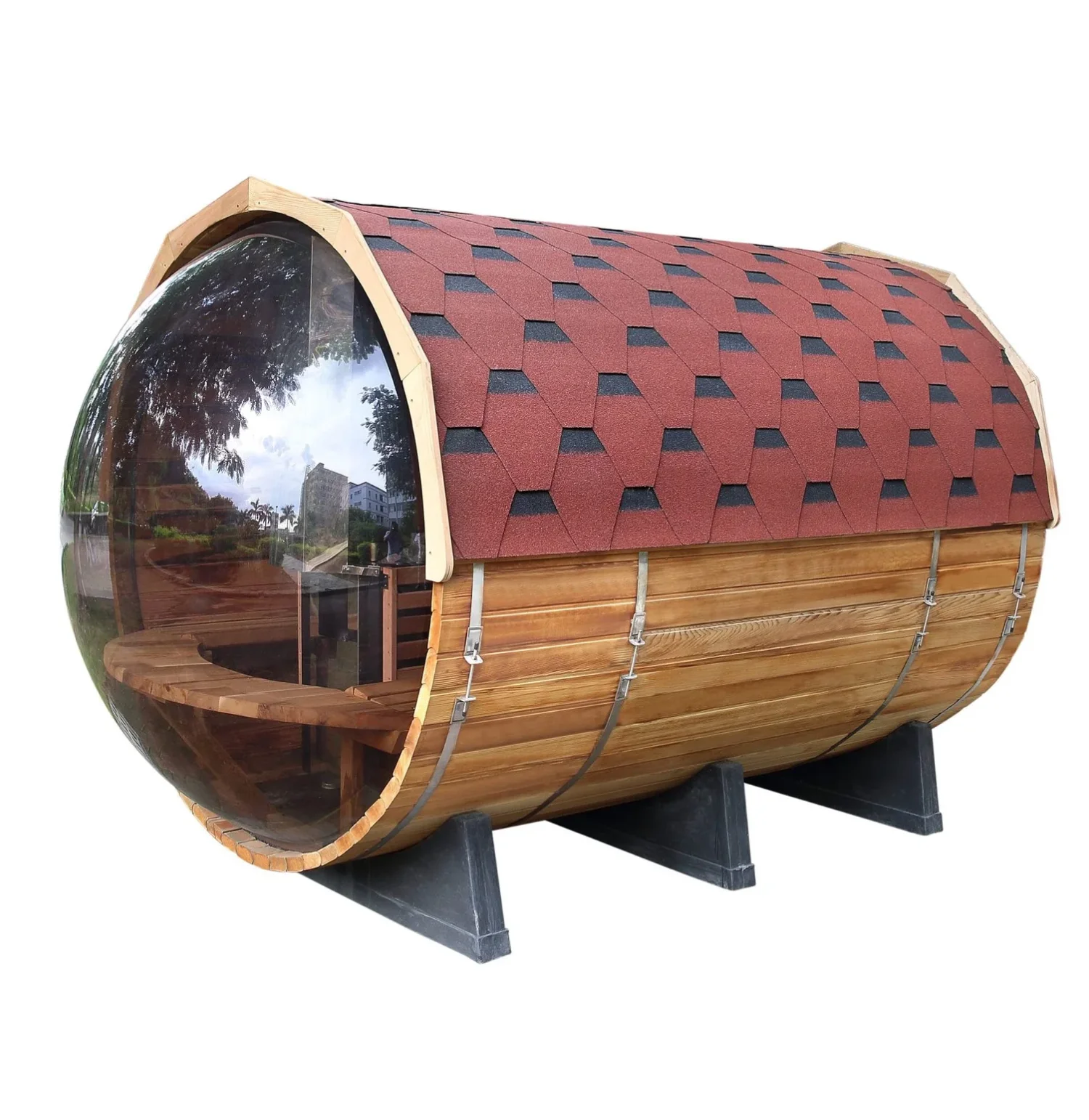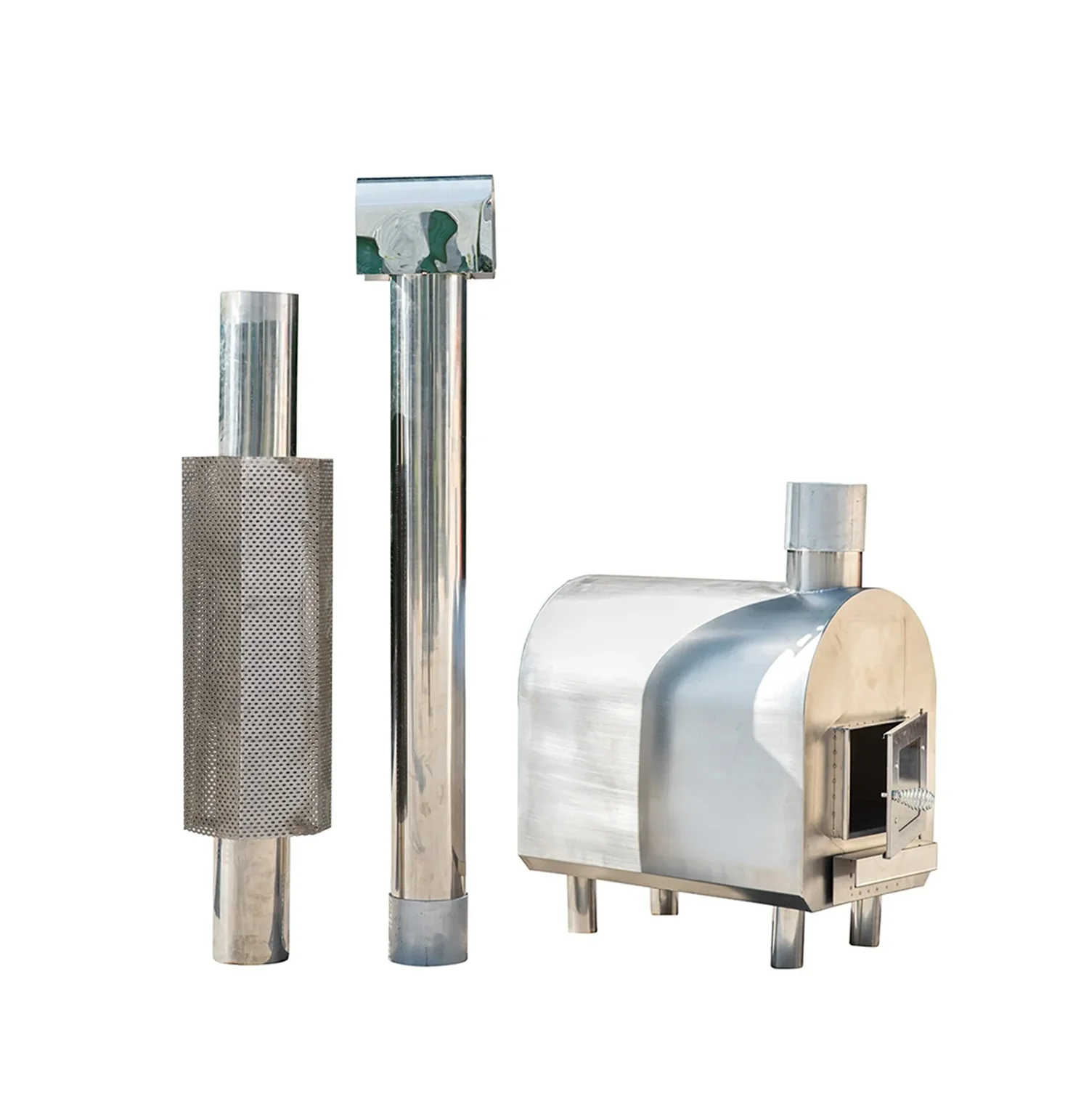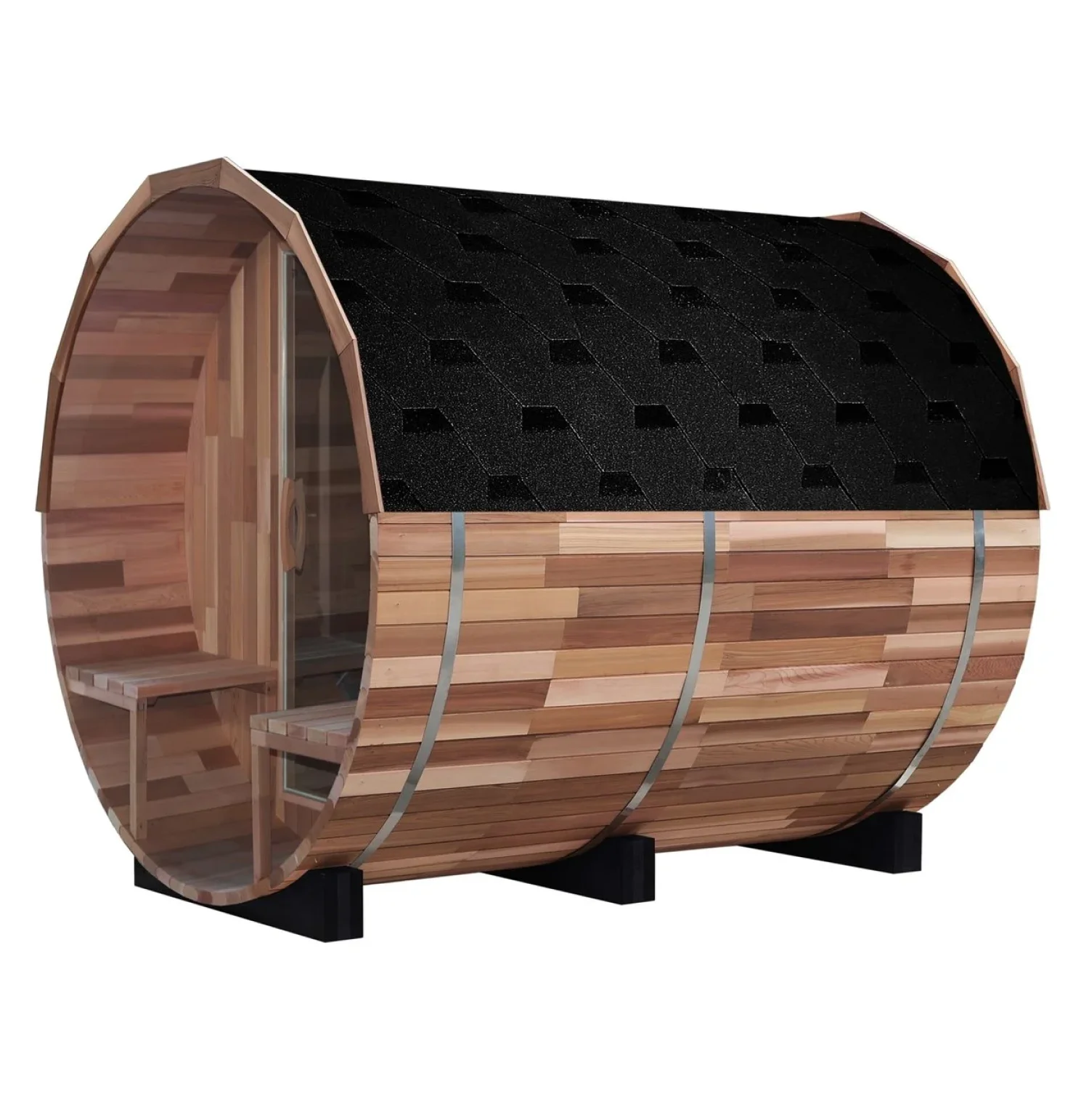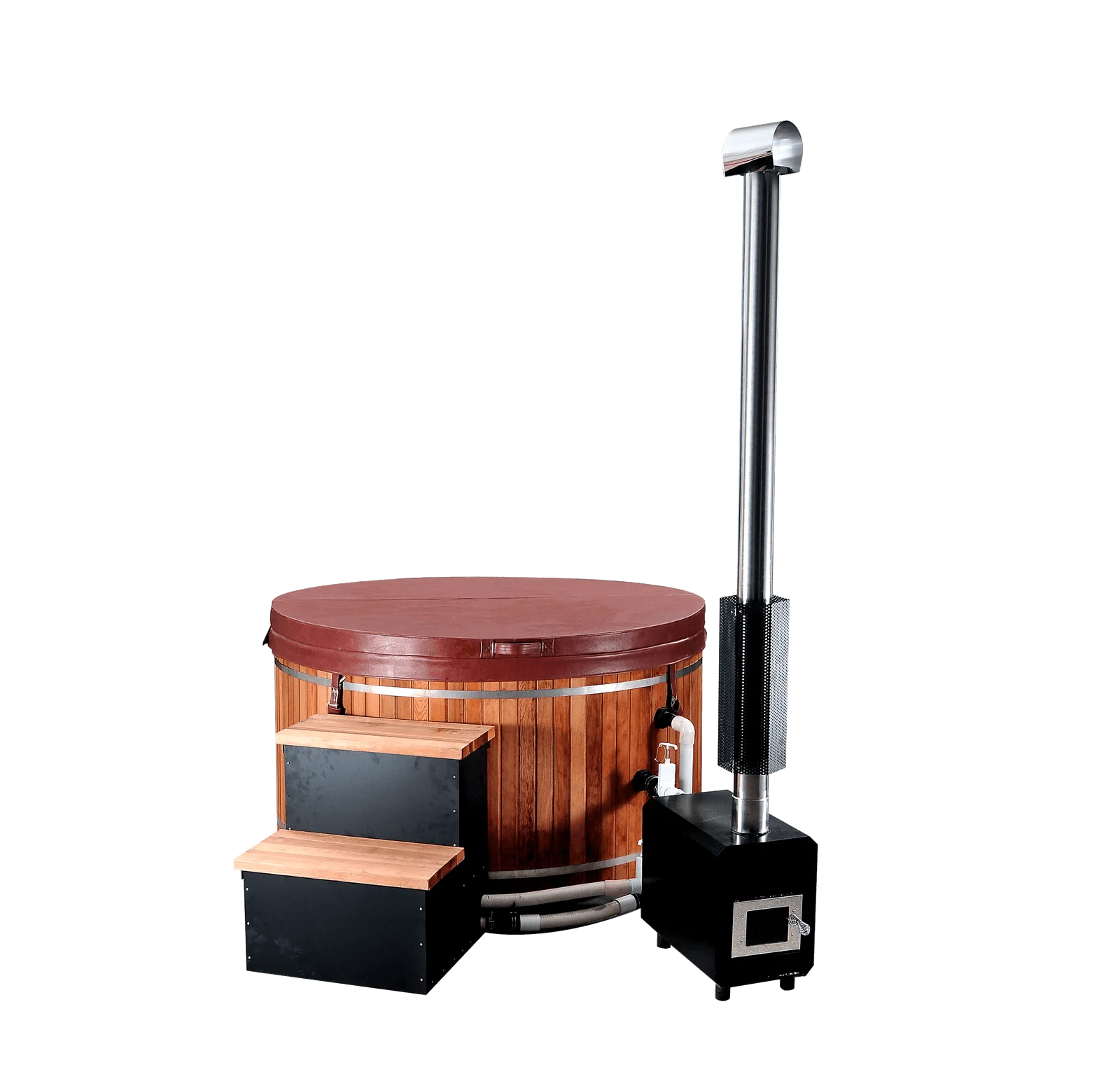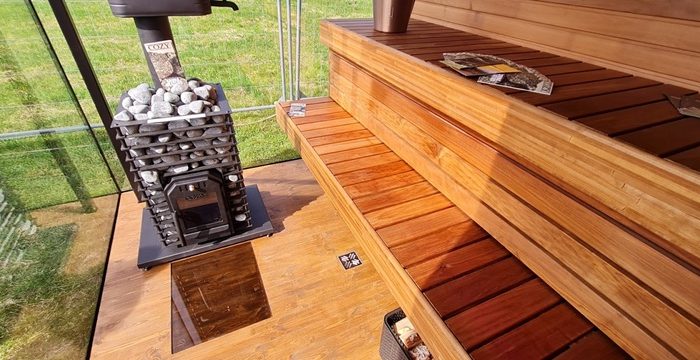Want to give your skincare routine a natural lift with the natural power of sauna therapy? Whether you choose cedar wood for its anti-inflammatory properties or hypoallergenic aspen for sensitive skin, incorporating sauna sessions can lead to visibly healthier, more radiant skin.
As a dedicated sauna enthusiast, we’ve witnessed firsthand the remarkable benefits of regular sauna sessions. The sauna’s unique combination of heat, humidity, and relaxation creates an environment where your skin can truly thrive.
We’ll share expert insights, recommendations for the best sauna tips, and how to maximize the benefits for your skin.
Disclaimer: This article is for informational purposes only and should not be considered a substitute for professional medical advice. Consult your doctor before making any changes to your skin routine.
Key Takeaways
- Saunas boost circulation, which enhances nutrient and oxygen delivery to the skin for a healthy glow.
- Sweating in a sauna helps cleanse pores and flush out toxins, aiding in acne prevention and skin texture improvement.
- Regular sauna use can increase skin hydration, counterintuitively, by promoting its ability to retain moisture.
- Stress reduction through sauna sessions can lower cortisol levels, benefitting skin health by reducing acne and eczema occurrences.
Enhance your well-being with Shym Saunas’ exceptional traditional saunas. Engineered to deliver maximum health benefits, our hot tubs provide the perfect environment for relaxation, stress relief, and muscle recovery.
Top Benefits of Sauna for Skin
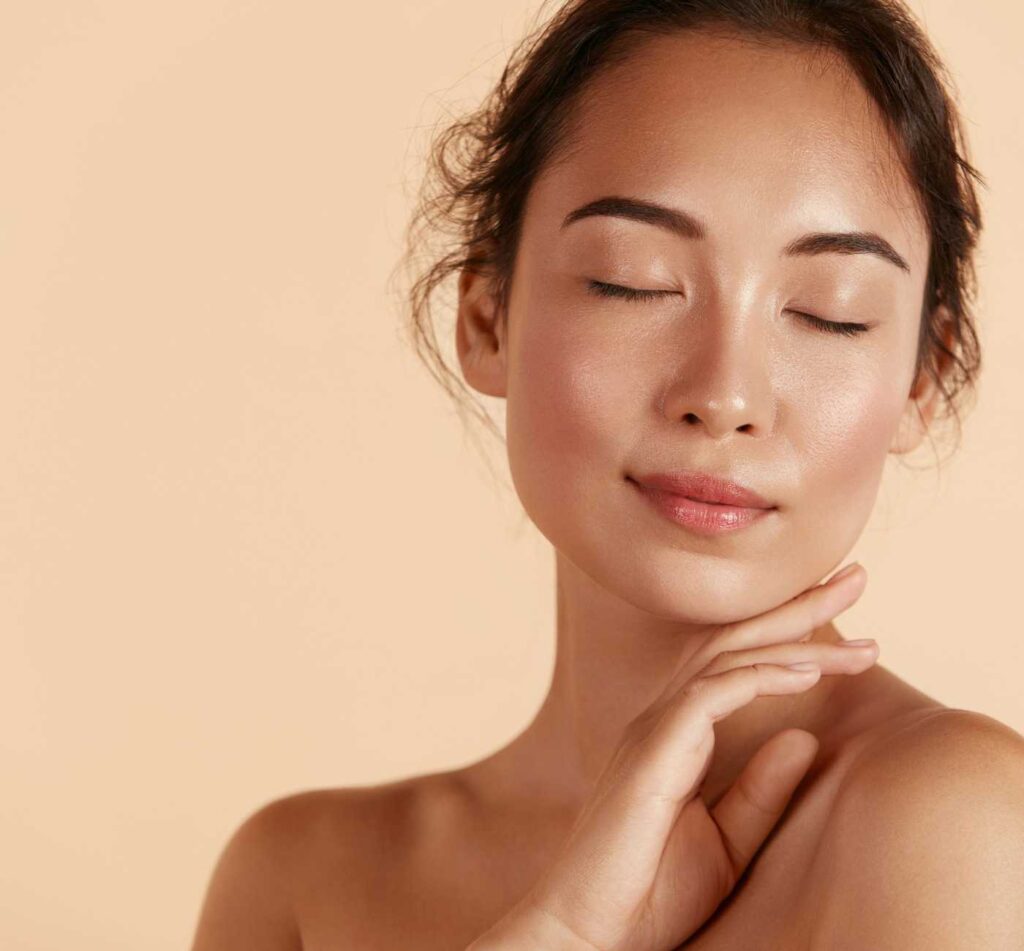
The sauna’s heat triggers a cascade of beneficial changes within your skin:
1. Enhanced Circulation for a Youthful Glow
The warmth from the sauna not only feels amazing but also does wonders for your skin’s circulation. Not only can the use of dry sauna therapy improve the quality of life by reducing back pains, but also heat dilates blood vessels near the skin’s surface. This increases blood flow and delivers a rush of oxygen and nutrients to your skin cells. This increased circulation promotes cell renewal and repair, contributing to a brighter, more vibrant complexion.
Spending time in saunas means you’re getting improved circulation to your skin, which is effectively going to make your skin look healthier and better.
2. Deep Cleansing and Pore Therapy
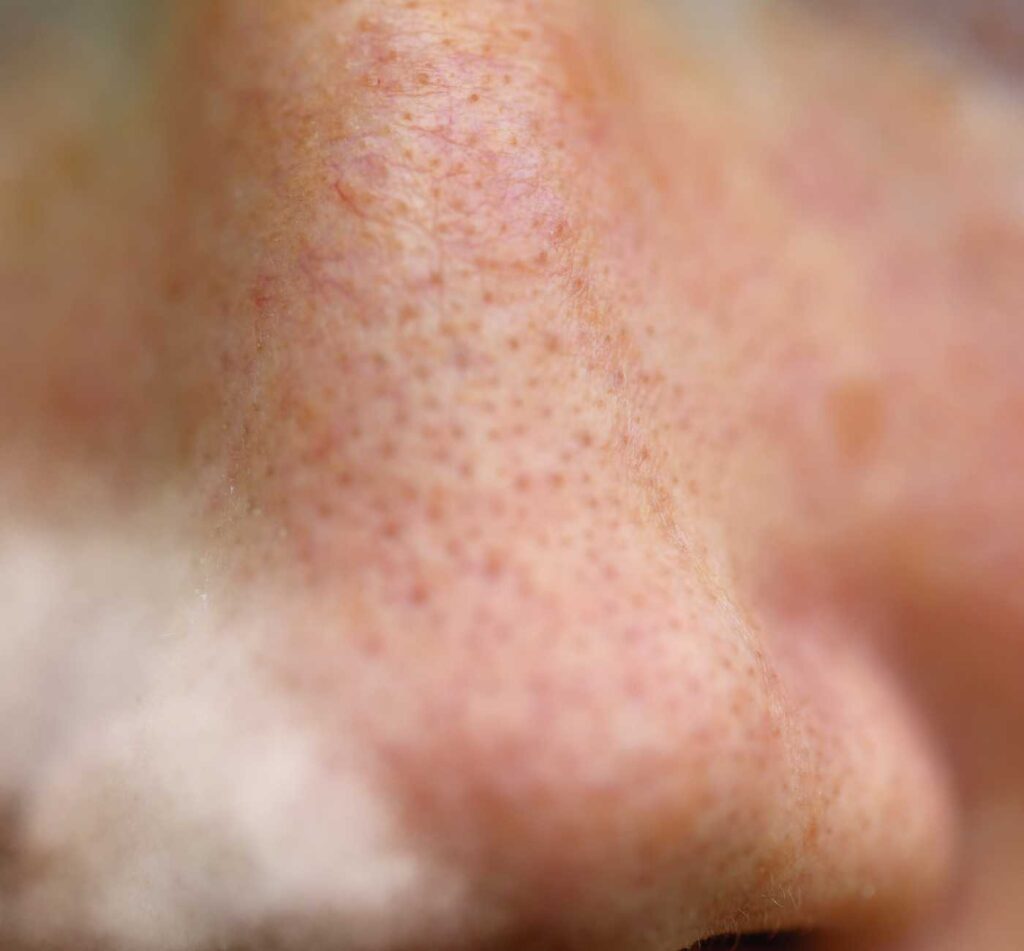
Experiencing the steam and heat of a sauna can help open up and cleanse the pores. In the words of Dr. Gilbert, “The thing about saunas is that you’re getting pore dilation, you’re opening up your pores.”
Dr. Gilbert
The sweat produced during a sauna session helps to flush out impurities and toxins that can clog pores, which is crucial in preventing acne and improving skin texture.
This natural deep cleansing process is like a refreshing workout for your pores, helping to prevent blackheads, whiteheads, and ugly breakouts.
3. Collagen Stimulation for Firmer, More Elastic Skin
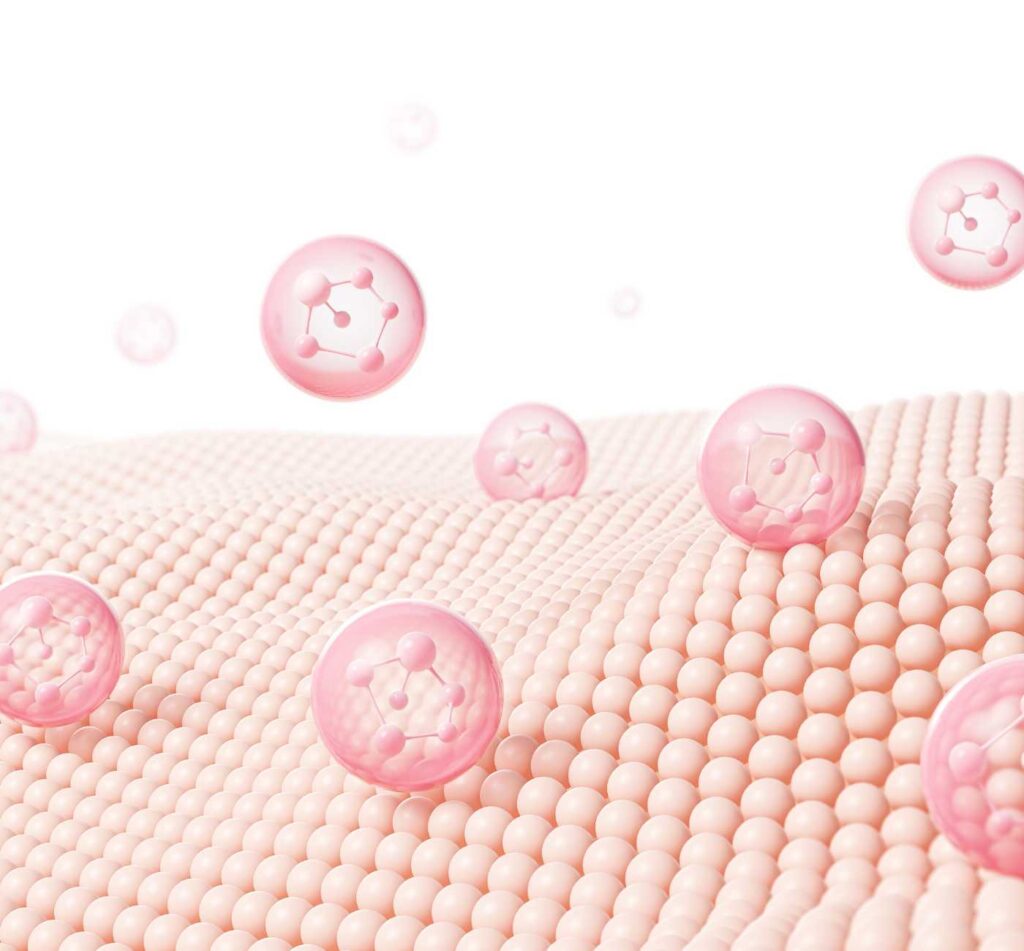
Collagen is the protein that gives your skin its structure, elasticity, and youthful bounce. Unfortunately, collagen production naturally declines as we age. Sauna sessions have been shown to stimulate collagen synthesis, helping to counteract this decline.
Regular sauna use can minimize the appearance of wrinkles and fine lines, leaving your skin looking firmer, smoother, and more youthful.
“The content of collagen and elastin produced by the fibroblasts increased after infrared radiation was proportional to the duration of irradiation exposure. Following 6 months of treatment, all patients reported good (51-75%) improvements in skin texture and roughness.” This research suggests that far-infrared wavelengths, in particular, can significantly increase collagen and elastin production in skin cells.
4. Natural Exfoliation for a Smoother Complexion
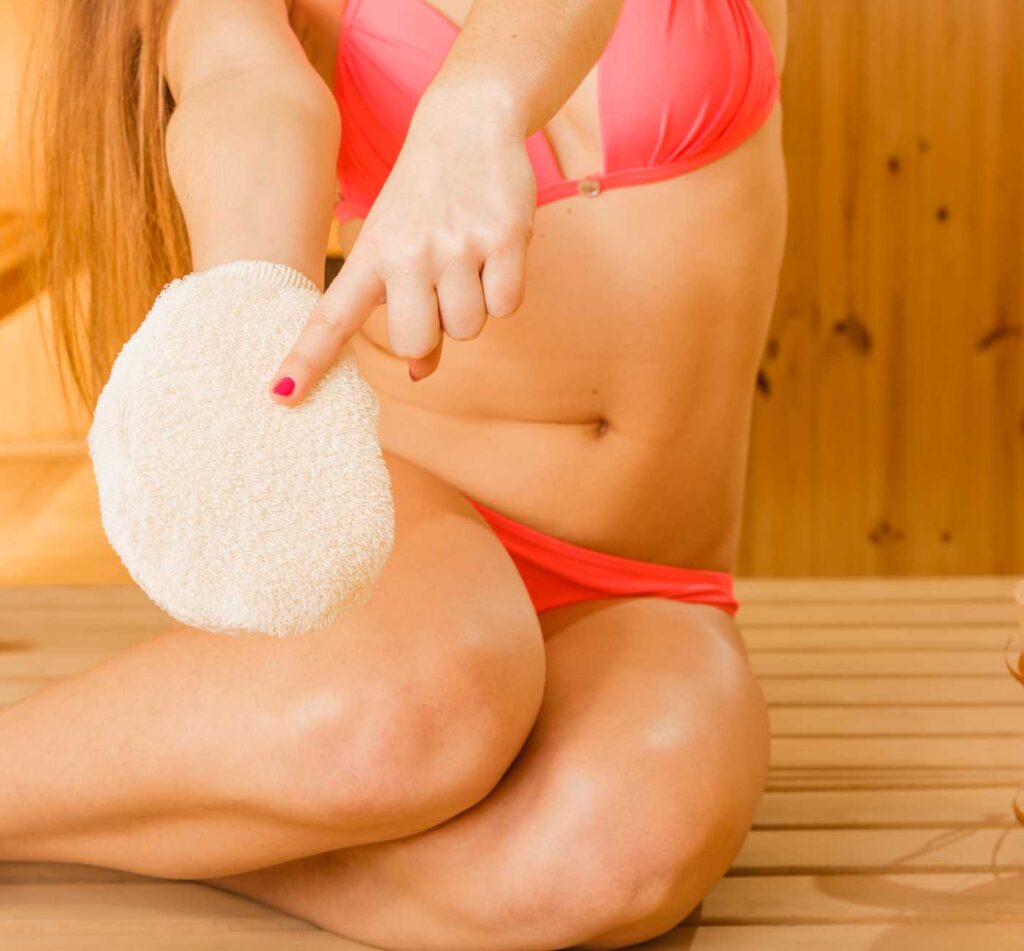
The combination of heat and sweating in a sauna creates a natural exfoliating effect. As you sweat, dead skin cells are gently lifted away, revealing the fresh, new skin cells beneath. This process can help improve skin texture, reduce dullness, and even out skin tone.
5. Hydration Boost
While it might seem counterintuitive, spending time in a sauna can actually increase your skin’s hydration levels. The key is to drink plenty of water before and after your sauna session. The heat helps to improve the skin’s ability to hold moisture, leaving it feeling soft and supple.
6. Stress Reduction for a Balanced Complexion
Stress is a major contributor to various skin problems, including acne, eczema, and premature aging. The sauna’s relaxing environment allows you to unwind and de-stress, which can indirectly benefit your skin by reducing inflammation and promoting a more balanced complexion. For a broader look at how saunas and hot tubs contribute to overall health and well-being, you might find this comparison helpful.
Related article: Sauna Meditation 101
7. Deep Cleanse for Your Skin

Sweating could be a natural way for your body to eliminate toxins, and the sauna amplifies this process. As you sweat profusely, your body may release harmful substances like heavy metals (nickel, lead, copper) through your skin.
Backed up by a 2016 study in China, they found that individuals who exercised regularly had lower levels of heavy metals in their bodies. While the role of sweat in detoxification remains debated, this study found a higher concentration of heavy metals in sweat than urine, suggesting that sweating could be a potential way to eliminate heavy metals.
This deep detoxification can help improve overall skin health and may even reduce the appearance of cellulite, as toxins stored in fat cells are expelled.
Related article: Maximising Fitness: Sauna Before or After Exercise for Enhanced Performance
8. Aromatherapy for Skin

Certain woods used in saunas, like cedar and aspen, release natural oils that have beneficial properties for the skin. Cedarwood, for example, used in our hot tubs and saunas, has anti-inflammatory and astringent effects that can help improve your skin’s appearance.
In addition, the heat from the sauna stimulates the release of endorphins, the body’s natural ‘feel-good’ chemicals. A better mood can reduce stress levels, which is often reflected in clearer, healthier skin.
Related Article: Hot Tub vs. Sauna: Or Should You Choose Both?
Can Saunas Help with Specific Skin Conditions? Studies
Research suggests that sauna use may be beneficial for several skin concerns:
Are Saunas Good for Acne?
By deeply cleansing pores, reducing inflammation, and regulating sebum production, saunas can help manage acne breakouts. A study published in the International Journal of Dermatology found that spa therapy, including regular sauna bathing, can reduce inflammation associated with acne.
In addition, Marina Peredo, M.D. of Skinfluence NYC says that “Sweating releases a high amount of salt, which needs to be washed away immediately after sweating…the combination of salt, sebum, and bacteria contributes to breakouts.”
For more experiential results, you may want to check out 20 Min of Sauna Acne Results.
Is Sauna Good for Eczema?
The heat and humidity in the sauna can soothe itching and inflammation associated with these chronic skin conditions. Studies have shown that regular sauna use can improve the symptoms of psoriasis and atopic dermatitis. The warmth and moisture can also help hydrate dry, itchy skin. However, people with atopic dermatitis may find their condition worsens due to the dry heat. The effects of dry saunas on skin conditions can vary so it is best to observe your symptoms.
Is a Sauna Good for Dermatitis?
Sauna sessions may help reduce skin irritation and promote healing in certain types of dermatitis. The heat can stimulate blood flow, which aids in the delivery of nutrients and oxygen to the affected area, supporting the healing process. However, excessive heat can also worsen inflammation, so it’s crucial to listen to your body.
Curious about what cold therapy does to your skin? You may also like to read Ice Bath Benefits for Skin
Which Type of Sauna is Best for Your Skin?
Each type of sauna offers unique advantages for your skin:
- Traditional Saunas (Finnish Sauna, Russian Banya): These use dry heat, which is excellent for detoxification and deep cleansing. The high temperatures can be intense, but they are effective at opening pores and promoting sweating.
- Steam Rooms (Turkish Hammam): The moist heat in steam rooms is especially beneficial for hydrating dry skin. The steam can help soften and loosen impurities, making them easier to remove. If you have dry or itchy skin, a steam room might be a good option.
- Infrared Saunas: These saunas use infrared light to heat your body directly, penetrating deeper than traditional saunas. The gentler heat of infrared saunas is suitable for people with sensitive skin or those who prefer a less intense sauna experience. Research suggests that infrared saunas may be particularly effective at stimulating collagen production and reducing inflammation.
Expert Tips for Maximizing Sauna Benefits for Your Skin
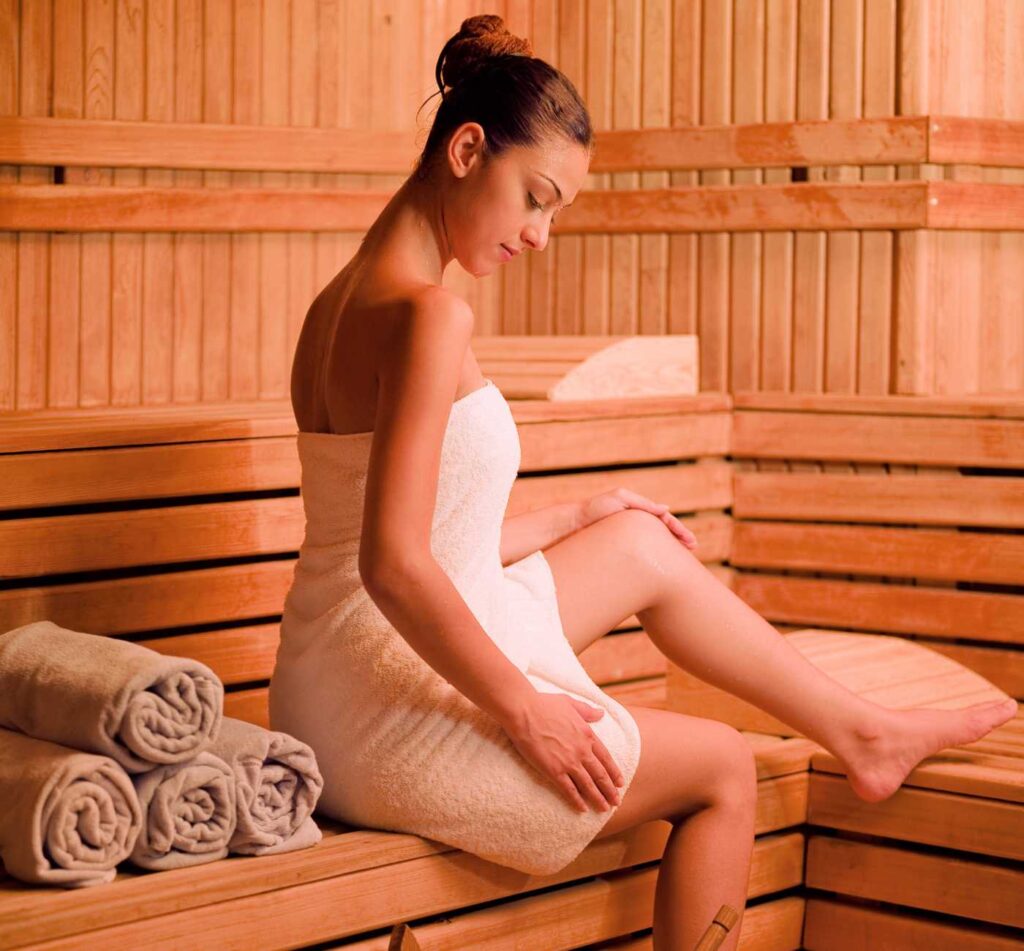
To get the most out of your sauna sessions for your skin, follow these expert tips:
- Hydrate, Hydrate, Hydrate: Drink plenty of water before, during, and after your sauna session. Staying hydrated is crucial for maintaining skin health and preventing dehydration, which can lead to dry, dull skin.
- Prep Your Skin: Before entering the sauna, wash your face and body with a gentle cleanser to remove makeup, dirt, and oil. This will allow your skin to sweat more freely and maximize the deep cleansing effect of the sauna.
- Start Slowly and Listen to Your Body: If you’re new to saunas or have sensitive skin, begin with shorter sessions (10-15 minutes) at lower temperatures. Gradually increase the duration and heat as your body adjusts. It’s important to listen to your body and not push yourself beyond your comfort level.
- Cool Down: After your sauna session, take a cool shower to close your pores and rinse away sweat and impurities. This helps prevent dirt and bacteria from re-entering your pores and contributing to breakouts. A cold shower can also provide a refreshing contrast to the heat of the sauna.
- Moisturize: Choose a moisturizer that suits your skin type and contains ingredients like hyaluronic acid or ceramides to boost hydration.
- Consider Exfoliation: If you want to enhance the exfoliating benefits of the sauna, you can gently exfoliate your skin once or twice a week after a sauna session. Use a mild exfoliant to avoid irritating your skin. Exfoliation can help remove any remaining dead skin cells and reveal a smoother, more radiant complexion.
Important Considerations and Precautions
While saunas are generally safe and offer numerous benefits, it’s essential to be aware of these precautions:
- Sensitive Skin: Individuals with sensitive skin should start with shorter sessions and lower temperatures to avoid irritation. If you experience any discomfort, such as redness or itching, exit the sauna immediately.
- Skin Conditions: If you have any pre-existing skin conditions like eczema, rosacea, or psoriasis, consult your dermatologist before incorporating regular sauna use into your routine. They can provide personalized guidance and recommendations.
- Dehydration: Always prioritize hydration by drinking plenty of water before, during, and after your sauna session. Dehydration can negatively impact your skin’s health and appearance.
- Medications and Alcohol: If you’re taking any medications or have consumed alcohol, it’s best to avoid the sauna. Both can impair your body’s ability to regulate temperature and increase the risk of dehydration.
Conclusion
By stimulating collagen and elastin production, saunas contribute to reduced signs of aging, improving skin’s elasticity and firmness.
Consider how incorporating sauna sessions into your wellness routine could elevate your skin health. Choose the benefit that resonates with your needs and make it a part of your skincare regimen.
FAQ: Benefits of Sauna for Skin
1. What should I do before and after a sauna session to maximize skin benefits?
Before entering a sauna, make sure your skin is clean to prevent clogged pores. Afterward, taking a cool shower can help close the pores, and applying a moisturizer will keep your skin hydrated.
2. Can sauna use help with anti-aging?
Yes, the improved circulation and detoxification processes can promote cell regeneration and the production of collagen, potentially reducing the appearance of wrinkles and fine lines.
3. Are there any risks to using a sauna for my skin?
While the benefits are significant, overuse or staying in a sauna for too long can lead to dehydration and irritated skin. It’s crucial to listen to your body and limit each session to 15-20 minutes.
Resources:
https://www.foreo.com/mysa/is-there-a-connection-between-the-sauna-and-healthier-skin

